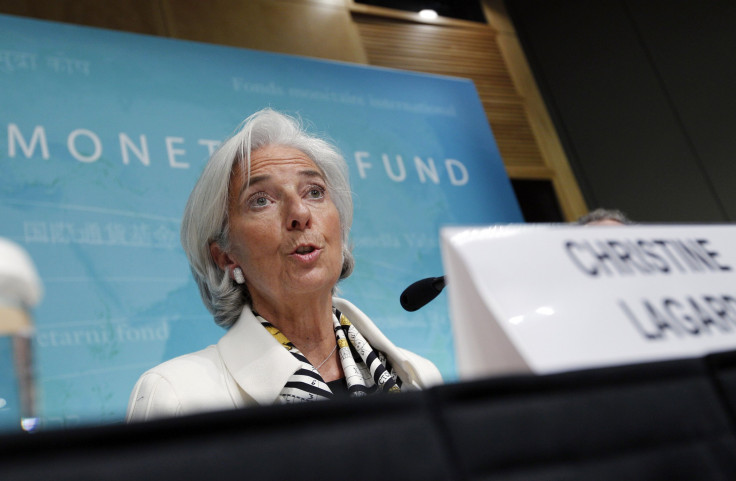IMF Chief Lagarde Warns Exiting Lax Monetary Policy Poses Risks

Christine Lagarde, the managing director of the International Monetary Fund on Friday sounded caution over central banks withdrawing monetary stimulus, especially in Europe and Japan. She said exiting from lax monetary policy will take the global economy into “uncharted territory.”
Addressing an international symposium of central bankers hosted by the U.S. Federal Reserve in Jackson Hole, Wyo., Lagarde said the effect of unconventional monetary policies, or UMP, has been positive so far in shielding the global economy from the risks of financial turmoil and in facilitating subsequent growth.
But loose monetary policies must eventually end, the IMF chief said, although the time frame for such a move will depend on circumstances in different regions.
“In Europe, for example, there is a good deal more mileage to be gained from UMP," Lagarde said, according to a statement published by the IMF. "In Japan, too, exit is very likely some way off. One thing we can say for certain: The path to exit will and should depend on the pace of recovery.”
Lagarde said extended periods of lax monetary policy and extremely low interest rates, coupled with the heightened quest for yield, could prove to be unhealthy risk-taking, although such measures were necessary to rein in financial turmoil.
The spillover effect from the initiation of loose monetary policies in the U.S. and Europe caused increased capital flows to some emerging markets, resulting in a surge in asset prices, corporate leverage and foreign exchange exposure, and such economies are vulnerable to withdrawal of monetary stimulus and tightened monetary policies in the West, Lagarde warned.
“The situation can turn quickly -- as we have seen in recent days in some emerging market economies,” she said. “Not everyone agrees about the size, or even direction, of spillovers. Bridging or even narrowing these differences is an important step toward deciding the future course of policy.”
Lagarde said central banks should clearly define what they mean by exit, since it will involve reversing both conventional and unconventional monetary policies, which have been lumped together in recent years.
“Even if well managed, exit from UMP may well present other, non-UMP countries with an arduous obstacle course,” which can be dealt with using prudential measures, capital flow management measures and exchange rate flexibility, Lagarde said.
She said an unconventional monetary policy will not achieve its purpose if it is not supported by fiscal, financial and structural reforms to sustain growth, adding, “Policies and policy coordination are not yet where they need to be, and in an interconnected world, the spillovers from domestic policies -- unconventional monetary policy included -- may well feed back to where they began.”
© Copyright IBTimes 2024. All rights reserved.












